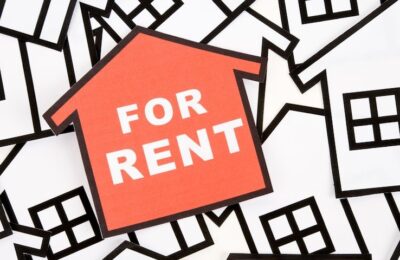If you are a buy-to-let landlord, you’ll almost certainly have landlord insurance to protect your investment. Indeed, if you have a mortgage, your lender will insist on it. However, due to a number of current factors, many landlords are unwittingly underinsured. If you are one of them, it may be time to update your insurance to avoid falling into the ‘average clause’ trap.
Why are so many landlords underinsured?
When you insure a rental property with landlord buildings insurance, you need to insure it for the amount it would cost to rebuild it from scratch. This can often be more than the market value of the property.
Unfortunately, the cost of rebuilding properties has soared in recent years. There are a number of reasons for this.
- Worker shortage. Before Brexit, nearly one in ten workers in the construction industry were from EU countries. It’s now much harder to replace these workers, meaning it costs more to hire them. This is pushing up rebuilding costs.
- Material costs. The cost of construction materials has soared (by a quarter between 2021 and 2022 alone). This is partly because of Brexit making importation more difficult and costly. The war in Ukraine has also had a major effect. Far fewer materials are available from Eastern Europe and none are available from Russia because of sanctions. In addition, the war has significantly disrupted supply chains.
- Inflation. We’re in the first period of high inflation for decades. In early 2021, inflation was under 1%. As a result, rebuilding costs have rocketed even as house prices have suffered their largest annual decline since 2009.
As you can see, if your landlord insurance is for the market value of your property, you’re very likely to be underinsured. This can be a more expensive mistake than you think, thanks to something called the average clause.
What is the landlord insurance average clause?
Most landlord insurance for buildings includes an average clause. If you’re not aware of this, we advise you check your policy for it now.
In brief, an average clause will reduce any pay-out by the percentage you are underinsured by. Imagine you insure your rental property for its market value of £400,000. The rebuilding cost is £600,000. As a result, you are underinsured by 33.33%.
Now imagine there’s a flood at the property which causes £40,000 of damage. Your insurer will only pay out £26,666 (66.66%). Worse, if you needed to rebuild the property, the insurer would only pay out £399,998 (66.6%) of the £600,000 rebuilding cost.
As you can see, not insuring for the right amount can leave you seriously out of pocket if disaster strikes! There is one glimmer of hope – most insurers offer a little bit of wiggle room and will pay out in full if you are insured for about 90% or more of the rebuilding cost. While that’s helpful, it’s much safer to be insured for the correct amount.
How do I make sure I have the right landlord insurance cover?
Your first step should be work out how much it would cost to rebuild your rental property. The Association of British Insurers has a useful residential rebuilding cost calculator which will give you a ballpark figure.
A better, though more costly approach would be to hire a chartered surveyor to carry out an assessment. They’re trained to take all relevant factors into account, including external features and buildings along with hidden rebuilding costs such as fees for site clearance, demolition and professional fees for architects, engineers and so on.
If you find that your rebuilding cost is more than what you’ve insured the property for, get in touch with your insurer as soon as possible. In the current climate it may be a good idea to review your cover every six months or so, and certainly after you undertake any renovations or improvements that increase the property’s value. While index-linked policies will renew for an increased amount, if factors like inflation remain high it’s wise to review your cover mid-term.
Do I need to do anything else?
If you’re reviewing your insurance, it’s a good idea to consider whether you need other kinds of cover. In our view, rent guarantee insurance is a must. This will cover missed rent and legal costs if you have to evict. If you have items such as appliances or furniture in your rental property, you may want to consider landlord contents insurance for these items (your tenants should have their own contents insurance for their belongings, but it won’t cover yours).
Finally, to help you keep your rental properties profitable, you may want to consider our Landlords’ Platinum Accounting Service. This will give you free landlord accounting software and a range of other benefits, including preparation of your tax returns and priority access to tax planning services. If your investment is worth protecting, it’s also worth making sure it stays profitable!
About Jon Pryse-Jones
Since joining THP in 1978, Jon Pryse-Jones has been hands on with every area of the business. Now specialising in strategy, business planning, and marketing, Jon remains at the forefront of the growth and development at THP.
An ideas man, Jon enjoys getting the most out of all situations, “I act as a catalyst for creative people and encourage them to think outside the box,” he says, “and I’m not afraid of being confrontational. It often leads to a better result for THP and its clients.”
Jon’s appreciation for THP extends to his fellow team members and the board. “They really know how to run a successful business,” he says. He’s keen on IT and systems development as critical to success, and he continues to guide THP to be at the cutting edge and effective.
Read More











